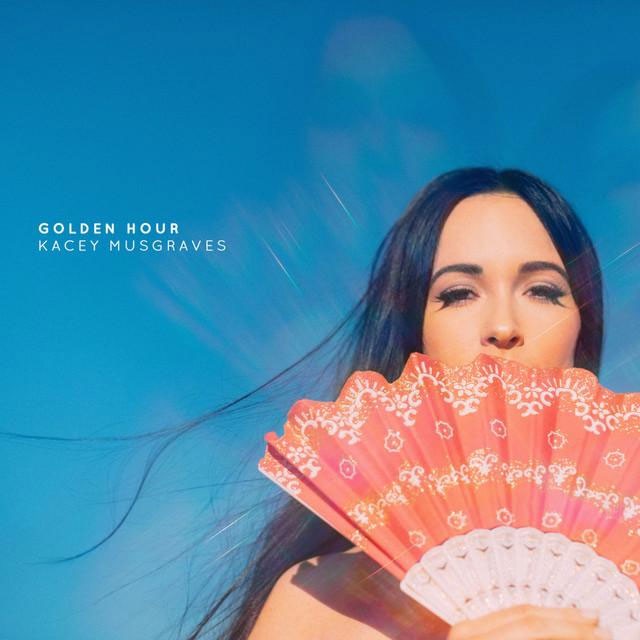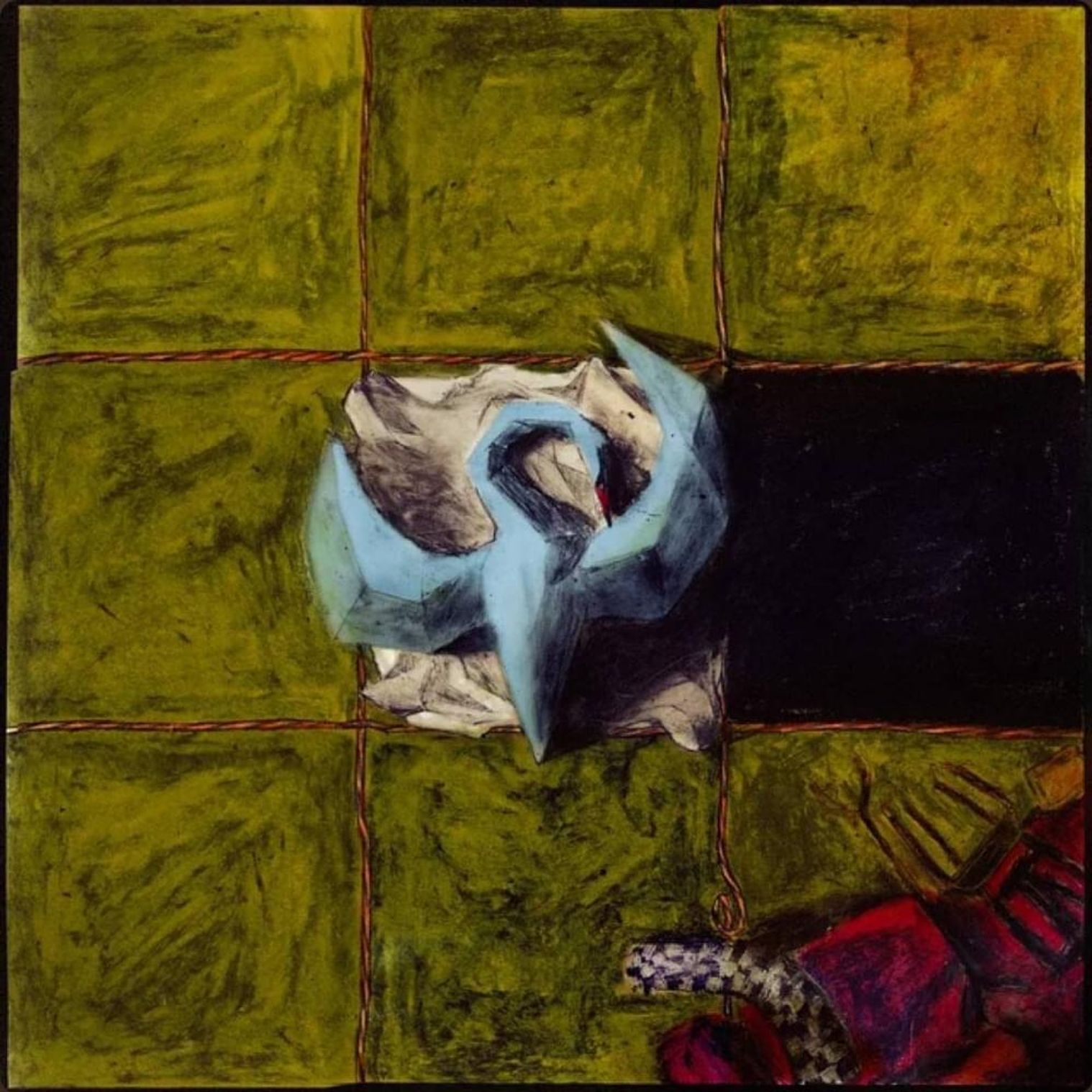I used to think of it as the "Snoopy Track" problem. Maybe now it's the "Supercut" problem. It's a weird, petty, entirely personal thing, and yet it drives me fucking nuts. It's the feeling that there is an absolutely amazing song buried deep on an album, and that this song is bound to be a deep cut forever, that it will never become the generational anthem that it should be. It doesn't matter whether the rest of the album is great -- which it frequently is -- or whether the song itself ever had any real shot at being a hit. It's just out there, lurking, waiting for the world to discover it, for everyone else to get the same endorphin-rush from a song that you do.
Maybe it'll never happen. Probably it'll never happen. Probably you're wrong. This is how I felt for months about Lil Wayne's "Shooter," but then Wayne released "Shooter" as a single, and it went nowhere. So it goes. But all of this is to say: This is how I currently feel about Kacey Musgraves' "Oh, What A World." I need you to hear "Oh, What A World." I need "Oh, What A World" to be huge. I need it to come out and change things. It won't happen. I know that. I'm almost at peace with it. But good gravy, you need to hear this fucking song.
"Oh, What A World" comes wrapped in a soft blanket of vocoder, this tender robot voice echoing Musgraves' chorus and marveling, along with her, at how gorgeous the universe can be when everything's going great. The music floats like a cloud, these steel guitar sighs and delicate banjo flutters and gentle acoustic guitars all dissolving into fog around Musgraves' voice. Musically, it's radical -- and by anyone's standards, not just by those of the Nashville pop-country machine to which Musgraves at least partially belongs. It's Moon Safari-era Air, transported magically to early-'70s Los Angeles and instructed to make a Glen Campbell record.
And yet Musgraves never treats "Oh, What A World" as a thrown gauntlet, a thumb to her chosen genre's eye. There is, admittedly, a quick weed allusion that might give a clue to the song's blissed-out sonic state: "Northern lights in our skies / Plants that grow and open your mind." But mostly it's a love song, one that Musgraves delivers with the same tender conversational force that she uses for basically everything. She's not drawing attention to the song's strangeness. She's using it as a vehicle for getting across what she wants to get across. And what she wants to get across is world-destroying, mind-expanding, soul-consuming love: "You're here right now, and I know what I feel / And these are real things." It's a song about how, when you're in love, the sky seems a little brighter and the air tastes a little fresher. There is no natural audience for this song, no radio format where it could slide comfortably into rotation. And yet I need the entire world to hear it right now.
"Oh, What A World" won't be getting any play on country radio, but it's not like that's a new situation for Musgraves. In three albums (plus a Christmas album that I guess we aren't counting), she's only cracked the country-radio top 10 once, with 2013's playfully needling empower-everyone jam "Follow Your Arrow." She's the type of country singer who wins Grammys but doesn't get heavy burn from the country establishment. She's not as much of an outsider as Sturgill Simpson, but she's more of an outsider than Chris Stapleton -- who, paradoxically enough, managed to leverage his outsider cred to become the new king of Nashville. This has something to do with Musgraves being a woman and with the country establishment being a lot more comfortable with male rebels than with female ones. When she was coming up, Musgraves worked as a country new-traditionalist type, fondly alluding lyrically to weed or same-sex attraction but delighting in country's rhinestone-spangled aesthetic history. She is from country, but not exactly of it.
But at this point, it's not even that interesting to think of Musgraves' music in terms of the country establishment. She's past that. With Golden Hour, her best album yet, she isn't exactly breaking the rules of a genre that's always thrived on a certain rigidity. Instead, she's just happily ignored them. A song like "Oh, What A World" -- or like "High Horse," the stunning starry-eyed quasi-disco single -- doesn't come from Musgraves wanting to make a big point out of defying Nashville orthodoxy. It's simply the best way she can find to express what she wants to express. And what she wants to express is love.
Last year, Musgraves married a singer-songwriter named Ruston Kelly. They're cute together. On social media, they come across as the rare couple who can be (1) dizzily and publicly in love with one another and (2) not annoying about it. And Golden Hour -- named after the time right before sunset, when the natural light is at its dreamiest, but also after what Musgraves calls "a really happy stage of my life" -- is almost a concept album about being dizzily in love, and about the fears and insecurities that can come along with that. There are exceptions. First single "Space Cowboy" is a supremely elegant bittersweet breakup song, and the lovely piano-and-vocals sketch "Mother" is simply about missing your mom. But most of the album is about the amazing, terrifying feeling that you're completely within somebody else's orbit, that the two of you are coming together and become a new third thing.
This is, of course, probably the single most written-about subject in the entire history of popular song. And Musgraves doesn't try to reinvent it. She's not really a flowery writer. She's calm and direct and specific. She knows she's dealing with cliché, and she's got the confidence to pull it off anyway. "Happy & Sad," for instance, is a vivid evocation of the feeling that everything is great now but that it could go wrong and shoot everything all to shit: "It's never felt so right / And I’m the kinda person who starts getting nervous / When I'm having the time of my life."
But as with so many great singers, it's not just the words that Musgraves sings that make her songs work; it's how she sings them. Musgraves' voice isn't showy, though she can certainly show off with it when she wants to. It's sharp and conversational and matter-of-fact, with a deep and satisfying Texan twang to it. It's just a tiny bit weathered, and that heaviness lends a soulful resonance. She can effortlessly hit a high-lonesome falsetto, and yet she leaves just a hint of a crack in her voice, an imperfection that makes her sound that much more human. Musgraves could pull a full Taylor Swift and go all the way pop in a couple of albums, and her music would still sound at least a little bit country because it's ingrained in that voice.
Some of the songs on Golden Hour have the fingerprints of killer hired-gun Nashville songwriters, some of whom are past Musgraves collaborators. But Musgraves, who co-wrote every song on the album, worked on much of the album with Daniel Tashian and Ian Fitchuk, two members of her backing band. She also co-produced the album with those two. They're Nashville pros, too, of course -- as is Musgraves. Both the songs and the writing glow with the sort of precision that only absolute professionals can bring. But there's a reassuring small-stakes intimacy to the album. It sounds like friends -- albeit friends who happen to be total music-making professionals -- working out some ideas with each other. Musgraves and her band apparently recorded much of the album in a studio above a stable that Sheryl Crow owns, and that is exactly the place where you'd want an album like this to be made.
Musgraves has always been great at coming across as someone who you already know. It's why the working-class waitress blues of her early single "Blowin' Smoke" worked so well; the way she sold the song, you could practically smell the dank, acrid presence of the smoke-break ashcan just outside the diner. Her music communicates a real empathy, something that's always made her an enormously appealing figure. And on Golden Hour, we get to hear her fall in love. The album sneaks up on you; certain songs can hit you just right at certain times, as "Oh, What A World" is hitting me right now. And if you let it sweep you along, you might get to feel a little bit of that transporting joy that Musgraves sings about. Maybe, under its influence, your sky might get a little brighter, too.
Golden Hour is out 3/30 on MCA Nashville. Stream it at NPR.
Other albums of note out this week:
• The Voidz' playfully off-kilter ideas-everywhere rocker Virtue.
• Frankie Cosmos' insular, hooky, personal Vessel.
• Jean Grae and Quelle Chris' goofy, idiosyncratic rap team-up Everything's Fine.
• Amen Dunes' languid, textured psych-rocker Freedom.
• Daphne & Celeste's Max Tundra-produced comeback Daphne & Celeste Save The World.
• Czarface and MF DOOM's full-length underground rap team-up Czarface Meets Metal Face.
• LVL UP side project Trace Mountains' collab-heavy A Partner To Lean On.
• Future collaborator DJ Esco's full-length project Kolorblind.
• FACS' menacing postpunk debut Negative Houses.
• Queen Of Jeans' starry-eyed indie-popper Dig Yourself.
• Augury's death metal rumination Illusive Golden Age.
• Primordial's pagan black metal wallow Exile Amongst The Ruins.
• The Vaccines' energetic Brit-rocker Combat Sports.
• En Vogue's R&B reunion Electric Cafe.
• Ashley McBryde's craggy, thoughtful country album Girl Going Nowhere.
• No Joy and Sonic Boom's collaborative EP.






